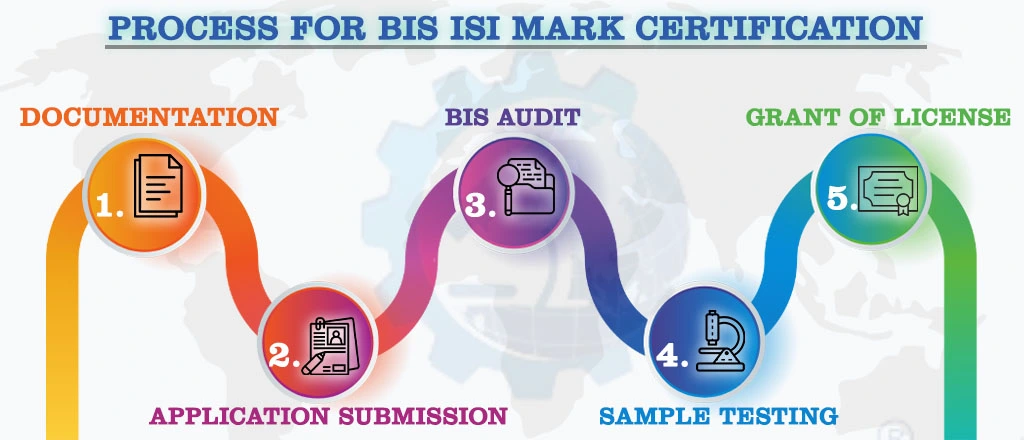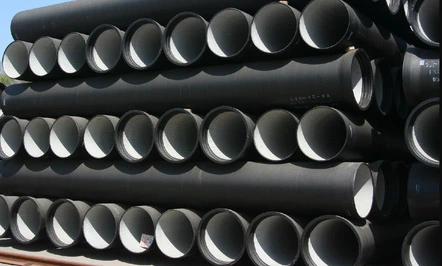BIS CERTIFICATION FOR CENTRIFUGALLY CAST DUCTILE IRON PRESSURE PIPES
IS 8329:2000
In this competitive scenario, it isn't easy to survive in the market without a standard quality and certified product. BIS license may also be required to sell products in the Indian market.
To get BIS certification and produce a standard quality product, the manufacturer must ensure that their product must follow the specified Indian standard.
Let’s take a closer look at IS 8329:2000 of centrifugally cast (spun) ductile iron pressure pipes.
This standard specifies the requirements and associated test methods for ductile iron pipes and their joints manufactured in metal (lined or unlined) or sand moulds for the construction of pipe lines:
- To convey water, sewage, or gas
- To be installed either underground or above ground
- Can be used with or without pressure
This standard also specifies requirements for ductile iron pipe materials, dimensions and tolerances, mechanical properties, and standard coatings and linings.
This standard does not restrict the use of other types of joints or future developments of other joints, as long as overall dimensions are kept consistent for safety and interchangeability.
The standard applies to pipes that are manufactured with socketted, flanged, or spigot ends for jointing with various types of gaskets, which are not covered by this standard, and that is normally delivered externally and internally lined and suitable for fluid temperatures ranging from 0°C to 50°C, excluding frost.
This standard does not include provisions for fittings used with this standard's pipes, and the specification for such fittings is covered by a separate standard, IS 9523. When the pressure requirements match, fittings conforming to IS 13382 can also be used with ductile iron pipes.
Depending on the service conditions and manufacturing process, pipes are classified as K7, K8, K9, KIO, or K12. The general requirements for material supply shall be as specified in IS 1387. The metal used in the manufacture of pipes must be of good quality and meet the mechanical requirements outlined in the standard.
TESTS
The following test shall be carried out in accordance with the method specified.
- Mechanical test
- Brinell hardness test
- Dimension and size
- Coating
- Tensile test
Marking:
Each pipe shall be marked with information as specified in the standard. The Standard Mark (ISI Mark) may also be applied to the pipes. The manufacturer must obtain a BIS licence from the Bureau of Indian Standards to use a standard mark (ISI Mark). The BIS issues a license based on a successful evaluation of the manufacturing infrastructure, quality control, testing capabilities, and manufacturing process.

NOTE:
For Detailed Information about the Procedure for BIS ISI Certification
Visit :
• ISI Mark Certification for Domestic Manufacturers• ISI Mark Certification for Foreign Manufacturers
Conclusion:
If a product falls under the scope of the BIS Conformity Assessment Scheme, All the manufacturers, importers, and foreign entities must obtain BIS ISI Certification. The Bureau may cancel the License if the product fails to meet certification requirements.
Aleph INDIA has been serving the industry as a single-window operator for all product regulatory compliance. We can assist importers or manufacturers in meeting all criteria for importing or selling a product in the Indian market.
International Audits & Participation
Testimonials
BIS REGISTRATION FOR ELECTRONIC & IT PRODUCT
In the era of globalization, world trade is growing rapidly and henceforth, Manufacturing and Import/Export businesses are also growing drastically...View More
BIS CERTIFICATE FOR FOREIGN MANUFACTURER
The Economy of India-the fastest developing economy on the globe with the capabilities that help it matches up with the biggest international...View More
PRODUCT CERTIFICATION SCHEME (ISI MARK) FOR DOMESTIC MANUFACTURERS
Anything a person buys from food to cars, clothes to electronics, branded to unnamed products there is always a question that wanders in one’s...View More
WIRELESS PLANNING AND COORDINATION (WPC)
WPC: Wireless means communication done from one point to another point without the wires and cables. Electromagnetic waves carry the ...View More
BUREAU OF ENERGY EFFICIENCY (BEE) CERTIFICATE
BEE CERTIFICATE: Energy is the future, and its conservation is the way of the bright future. Everyone claims the environment is important...View More
E-WASTE MANAGEMENT
E-waste is one of the world's fastest-growing trash streams. We currently manufacture almost 50 million tones of it each year...View More
Request a call back.
Would you like to speak to one of our Senior Technical advisers over the phone? Just submit your details and we’ll be in touch shortly. You can also email us if you would prefer.
BIS REGISTRATION FOR ELECTRONIC & IT PRODUCT
In the era of globalization, world trade is growing rapidly and henceforth, Manufacturing and Import/Export businesses are also growing drastically...View More
BIS CERTIFICATE FOR FOREIGN MANUFACTURER
The Economy of India-the fastest developing economy on the globe with the capabilities that help it matches up with the biggest international...View More
PRODUCT CERTIFICATION SCHEME (ISI MARK) FOR DOMESTIC MANUFACTURERS
Anything a person buys from food to cars, clothes to electronics, branded to unnamed products there is always a question that wanders in one’s...View More
WIRELESS PLANNING AND COORDINATION (WPC)
WPC: Wireless means communication done from one point to another point without the wires and cables. Electromagnetic waves carry the ...View More
BUREAU OF ENERGY EFFICIENCY (BEE) CERTIFICATE
BEE CERTIFICATE: Energy is the future, and its conservation is the way of the bright future. Everyone claims the environment is important...View More
E-WASTE MANAGEMENT
E-waste is one of the world's fastest-growing trash streams. We currently manufacture almost 50 million tones of it each year...View More
View All Services
Request a call back.
Would you like to speak to one of our Senior Technical advisers over the phone? Just submit your details and we’ll be in touch shortly. You can also email us if you would prefer.






























